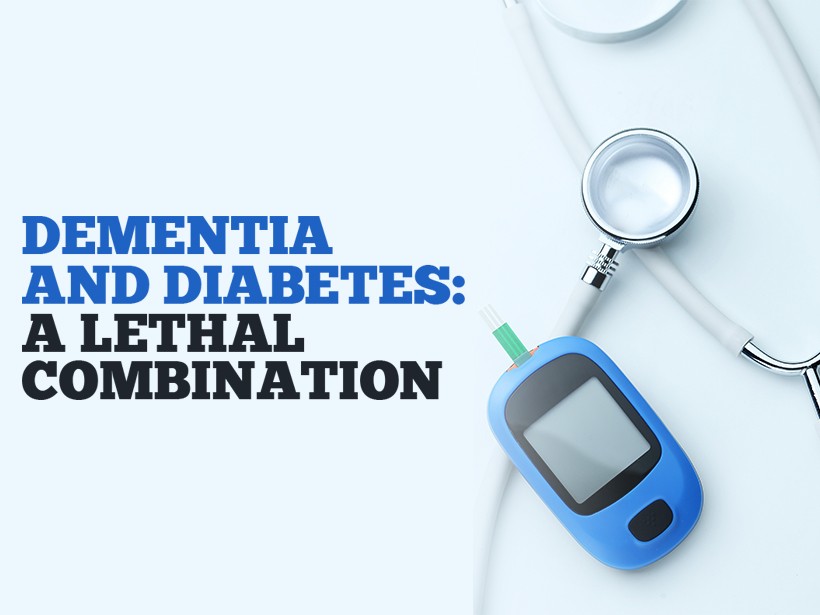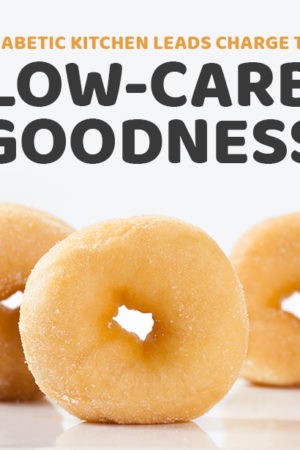A recent study1 revealed that seniors who suffer from both dementia and diabetes have a 67 percent higher risk of death after suffering from hypoglycemia (dangerously low blood sugar) than those with diabetes alone. The study relied on data gathered from nearly 20,000 participants aged 65 and older who had been diagnosed with Type 1 or Type 2 diabetes.
Researchers gathered follow-up information five years after participants' first recorded low blood sugar episodes in order to determine correlation and risk. The findings were presented at the annual meeting of the European Association for the Study of Diabetes2 in Berlin, sparking informative dialogue regarding the treatment of elderly patients.
Emerging Research
The heightened risk for those who suffer from both diabetes and dementia brings to light an incredibly vulnerable–and expanding–population. Dr. Katharina Mattishent, an Alzheimer's Society clinical research fellow at Norwich Medical School in England, indicated that hypoglycemia is an under-recognized risk factor for this vulnerable population and that new approaches to treatment should be explored.
Mittishent pointed out that no new dementia drugs have been developed in the last 15 years, placing the emphasis in treatment on minimizing risk and improving care. As the prevalence of both diabetes3 and dementia are on the rise, the ability to monitor and adjust glucose levels is of the utmost importance.
Prevention
According to the study, reducing the occurrence of hypoglycemia in patients with dementia and diabetes is essential to long-term outcomes. Mittishent suggests that instead of focusing on strict glucose-lowering targets, it might be beneficial to expand reliance on continuous glucose monitoring devices.
In the past, this has been a less favorable option as it can create an enormous strain on a patient's daily comfort. However, with the rising awareness of the harm caused by sugar and the value in monitoring how the body reacts to certain foods, monitoring blood sugar has become more mainstream.
Even companies such as FitBit and Apple are expanding their health monitoring systems to address the issue of blood sugar monitoring. But monitoring blood sugar is only half the battle. Which raises the question: what role does diet play in improving patient outcomes?
The Role of Diet
Diabetes has long been managed with a combination of medication and dietary restrictions, many of which are found in the keto diet by reducing carbs and limiting sugar intake. The keto diet, in particular, has shown positive results for both neurological conditions and diabetes.
Additional research is needed to fully flesh out the relationship between diabetes and dementia as well as the corresponding impact of blood sugar monitoring. In the meantime, researchers rely on dietary restrictions. Fortunately for those attempting to adhere to these restrictions, more and more restaurants are making low-carb, low-sugar options key ingredients of the menu.
NUTRITIONAL DISCLAIMER
The content on this website should not be taken as medical advice and you should ALWAYS consult with your doctor before starting any diet or exercise program. We provide nutritional data for our recipes as a courtesy to our readers. We use Total Keto Diet app software to calculate the nutrition and we remove fiber and sugar alcohols, like erythritol, from the total carbohydrate count to get to the net carb count, as they do not affect your blood glucose levels. You should independently calculate nutritional information on your own and not rely on our data. The website or content herein is not intended to cure, prevent, diagnose or treat any disease. This website shall not be liable for adverse reactions or any other outcome resulting from the use of recipes or recommendations on the Website or actions you take as a result. Any action you take is strictly at your own risk.
- Parenting and Language: Sugar - January 29, 2019
- Beyond Diet: Reasons For Weight Gain - January 24, 2019
- Where Every Diet Should Begin: At Home - January 15, 2019































